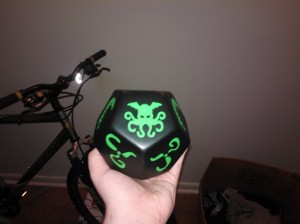It’s the last Tuesday of the month and that means it’s time for more of those mighty morsels called Dragon Snacks. So let’s get right into the Dragon’s kitchen.
War, what is it good for? When was the last time you played in a campaign where war was the major focus? Sure, some settings have overtones of a coming war, or they have war going on in the background, but when was the last time it was front and center, the main event of the entire game? It’s an interesting space to play in. You can have battles as a regular occurrence, tense political intrigue, and a very active world with shifting boarders. A campaign based on war can hook players quickly and keep them actively involved for a long time.
To the death, I grapple with thee. Why do all fights usually end in the death of one or more of the groups involved? It’s like a natural instinct for any group, no matter the system. I think a part of it is players always assume their enemies are out to murder them. I know I’ve done it. Maybe try to give your players an alternative to killing their enemies or put them in a situation that they have to escape from to see what their instincts are. Maybe it’ll teach them that death isn’t always the answer.
Retro is the way to go. I’ve noticed a recent trend in games that is a step back towards their origin and I really dig it. Dungeons and Dragons was originally developed from a miniatures wargame called Chainmail. There’s a little more to the story than that, but that’s the basics of the basics. Recent games like Savage Worlds and Iron Kingdoms are closer to miniatures games than RPGs. I love minis, so this greater emphasis on them is fine by me. From what I’ve seen, this new trend has lead to faster game play and smoother game sessions (at least from what I’ve seen).
So there you have it, three more Dragon Snacks. As always, comment here if you have anything to say on these subjects.

